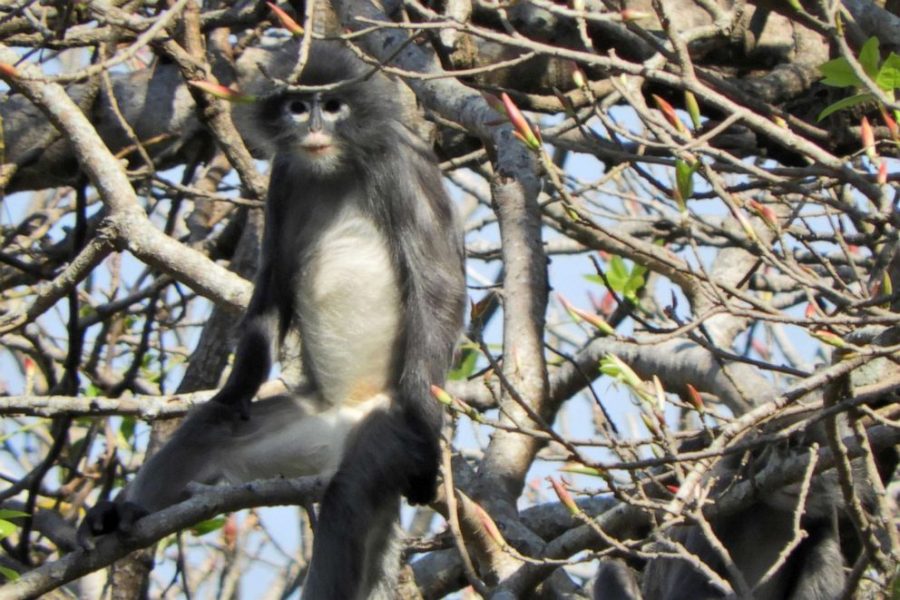Recently discovered primates critically endangered
A species in Myanmar discovered through past research discrepancies already faces extinction
December 17, 2020
Scientists have discovered a new primate species in Myanmar that is already critically endangered, with only 200-260 remaining. Researchers have offered a plan on rehabilitating and saving these monkeys.
Scientists had suspected a new species living in Myanmar for years, but never had the right equipment or specimens to prove it. “These specimens have been in the collections for over a hundred years but we didn’t have the tools or the expertise to do this work before,” explained museum curator Roberto Portela Miguez in a press release. The team of researchers noticed several subtle differences in measurements, bones, and fur coloration pattern. They were able to prove their suspicions.
Myanmar has opened up international collaborations with scientists in the last decade, which led to discoveries of many reptiles, but primate discoveries are especially rare. The monkeys were named Popa langur after their location at Mount Popa. This land is sacred and protected, but human threats still arise. “Hunting is a big problem, but the bigger threat is the habitat is almost gone and it is reduced, fragmented and isolated due to human encroachment, ” Miguez said. With 46% of trees around the world being cut down by 2015 according to National Geographic, deforestation jeopardizes the shelter for hundreds of species. All scientists needed was a plan of action.
Because the land this species resides in is already sacred and protected, not much else can be done. However, scientists believe that spreading awareness of the species could help in its rescue. “We hope that the naming of the species will help in its conservation,” Miguez said. “The hope is that by giving this species the scientific status and notoriety it merits, there will be even more concerted efforts in protecting this area and the few other remaining populations.” With an informed point of view, the future for this species has hope.
Primatologist Ngwe Lwin promises additional field surveys and stricter protection measures conducted with the Flora & Fauna International’s program. Click here to learn more about how you can help with deforestation.












Vic Vaughn • Dec 20, 2020 at 8:37 pm
Fascinating. Nice work, Leylah!